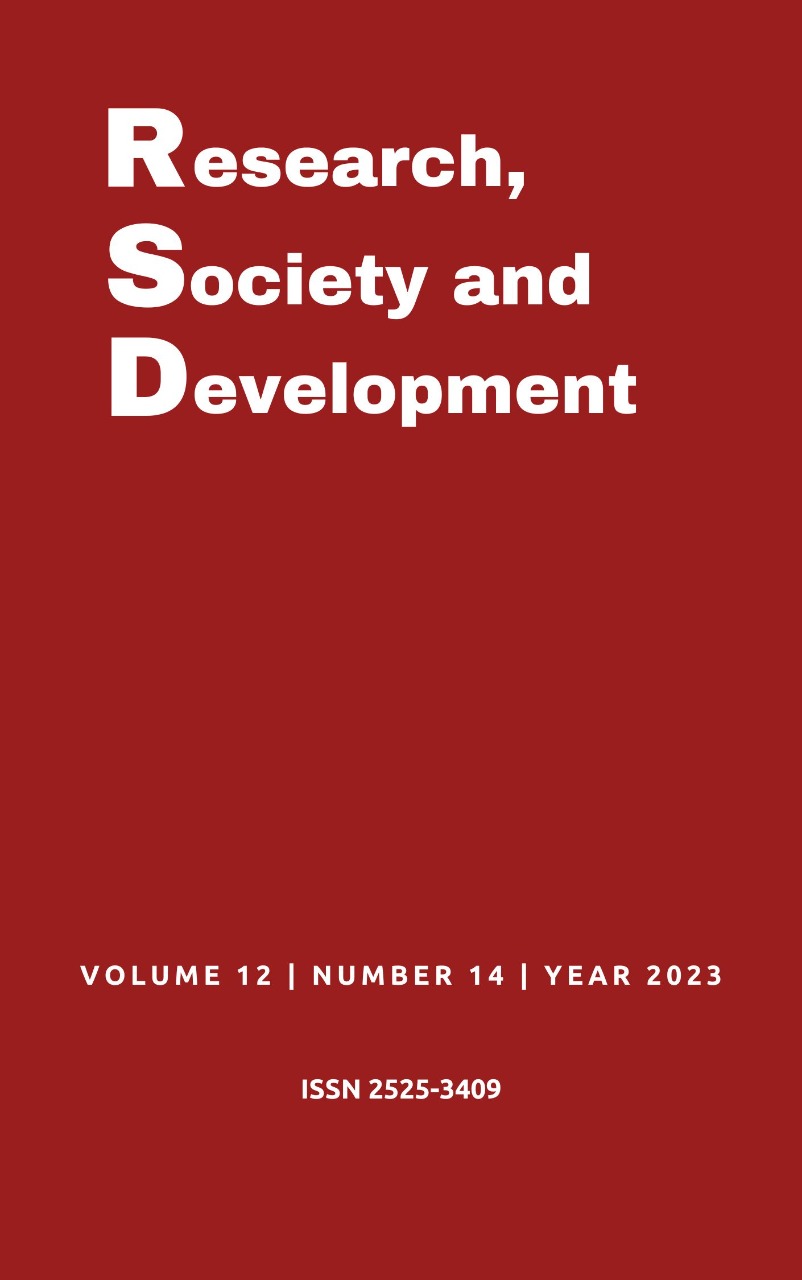Socio-environmental impacts caused by tropical cyclones Idai and Eloise in Sussundenga District, Mozambique
DOI:
https://doi.org/10.33448/rsd-v12i14.40818Keywords:
Climate change, Cyclone, Environment, Idai, Eloise.Abstract
Mozambique is greatly endowed with a diverse potential of natural resources, most of which are still unexploited or in an exploration phase. However, the country faces major challenges to make better use of the resources to feed the population and reduce poverty. The country is prone to recurrent natural disasters, such as: flooding and cyclones (north) and droughts (south). Between 2019 to 2021, Sussundenga District was punctuated by two severe tropical cyclones – Idai and Eloise – leaving immeasurable destruction of unprecedented magnitude in its wake. Worth mention that cyclone Eloise hit the country when it was coping with the harmful effects of the Covid-19 pandemic. To date, there has been little research that has been conducted on socio-environmental impacts of cyclones in this region. Furthermore, climate change is projected to increase the frequency and intensity of tropical storms. Thus, this study has been designed as initial step towards filling that knowledge and evidence gap. The objective of this research was to investigate socio-environmental impacts caused by tropical cyclones in Sussundenga District. Preliminary, a desk-based study was made, followed by main data collection phase through in-depth interviews and participant observations. The results mapped which areas were the most affected within the district. It was observed that awareness of climate change is low in rural areas and women were more vulnerable to the effects of cyclones Idai and Eloise. Also, it was found that the lack of investment in climate change adaptation actions still pose a great challenge for the country.
References
Ashraf1, M., & Azad, A. (2015). Gender Issues in Disaster: Understanding the Relationships of Vulnerability, Preparedness and Capacity. Environment and Ecology Research 3(5), 136-142.
Barbetta, P. A., Reis, M. M., & Bornia, A. C. (2004). Estatística para Cursos de Engenharia e Informática. Atlas.
Chapanga, I., Cristóvão, L., Chilole, G., & Mulima, E. (2021). Social and Environmental Impacts of Artisanal and Small-scale Gold Mining: The Case of Chimanimani National Park. Research, Society and Development, (79), 48-52.
Chichango F., & Cristóvão L. (2021). Mozambique Solar Thermal Energy Technologies: Current Status and Future Trends, Journal of Energy Technologies and Policy, 11(5).
Cristóvão, L., Fernando Chichango, P. M., & Macanguisse, J. (2021). The Potential of Renewable Energy in Mozambique: An Overview. Journal of Energy Technologies and Policy, p30-37.
Dijkhorst, H. & Vonhof, S. (2005). Gender and Humanitarian Aid. A Literature Review of Policy and Practice. Netherlands: Department of Disaster Studies, Wageningen University.
Enarson, E. and Chakrabarti, P.G.D. (2009). Women, Gender and Disaster Global Issues and Initiatives. SAGE Publication.
Ganje, J., Mulima, E., & Cristóvão, L. (2021). Ethnozoological Impacts on Fauna Conservation: The Case of Chimanimani National Park. Research, Society and Development, (76)16-21.
Gil, A. C. (1995). Métodos e Técnicas de Pesquisa Social. (5a ed.), Atlas.
Holland, G., J. (2016) The Global Guide to Tropical Cyclone Forecasting. World Meteorological Organization, 337p.
INAM, Previsão Climática Sazonal para o Período de Outubro de 2021 Á Março de 2022. Maputo, 2022.
Lakatos, E. M., Marconi, M. de A. (2015) Metodologia do trabalho Científico. (7a ed.), Revista e Ampliada. Atlas. 225 pp.
Lequechane, J., Mahumane, A., Chale1, F., Nhabomba, C., Salomão, C., Lameira, C., Chicumbe, S. & Baltazar, C. (2020). Mozambique’s response to cyclone Idai:how collaboration and surveillance with water, sanitation and hygiene (WASH) interventions were used to control a cholera epidemic. Infectious Diseases of Poverty.9:68.
Macamo, C. (2021). After Idai: Insights from Mozambique for Climate Resilient Coastal Infrastructure. Policy Insights 110.
Macanguisse, J., Cristóvão, L., Vignoli, N., Orioli, S., & Jaik, C. (2022). Strategies to enhance energy availability in Mozambique: A comparison of national electricity market regulations and strategies to encourage grid-integrated distributed renewable energy generation. Research, Society and Development, 11(7).
Mavume, A., Rydberg, L., Rouault, M., & Lutjeharms, J. (2009) Climatology and Landfall of Tropical Cyclones in the South- West Indian Ocean. West. Indian Ocean J. Mar. Sci 8, 15–36.
Mavume, A, Banze, B, Macie, O, & Queface, A. (2021). Analysis of climate change projections for Mozambique under the representative concentration pathways. Journals Atmosphere, 12(5).
National Climate Change Adaptation and Mitigation Strategy (ENAMMC) 2013-2025.
Shenga, P., Cristóvão, L., & Broman, O. (2013). A review of Mozambican wood exploitation: map of the processing chain. 21st International Wood Machining Seminar, Japan, (21)293-301.
Sibanda, W., Mukwada, G., & Hansen, M. (2022). Disaster (Un)preparedness under cyclone Idai: Revisiting women activities in water and sanitation at tongogara refugee camp, Zimbabwe.
The Notre Dame Global Adaptation Initiative 2017.
Virtanen, P., Cristóvão, L., & Mourinho, J. (2022). Complex effects of natural disasters on protected areas: the case of Cyclone Idai in Mozambique. Taylor & Francis Group, (1)71-84.
Downloads
Published
Issue
Section
License
Copyright (c) 2023 Rosa Meque; Luís Cristóvão; Fernando Chichango

This work is licensed under a Creative Commons Attribution 4.0 International License.
Authors who publish with this journal agree to the following terms:
1) Authors retain copyright and grant the journal right of first publication with the work simultaneously licensed under a Creative Commons Attribution License that allows others to share the work with an acknowledgement of the work's authorship and initial publication in this journal.
2) Authors are able to enter into separate, additional contractual arrangements for the non-exclusive distribution of the journal's published version of the work (e.g., post it to an institutional repository or publish it in a book), with an acknowledgement of its initial publication in this journal.
3) Authors are permitted and encouraged to post their work online (e.g., in institutional repositories or on their website) prior to and during the submission process, as it can lead to productive exchanges, as well as earlier and greater citation of published work.


